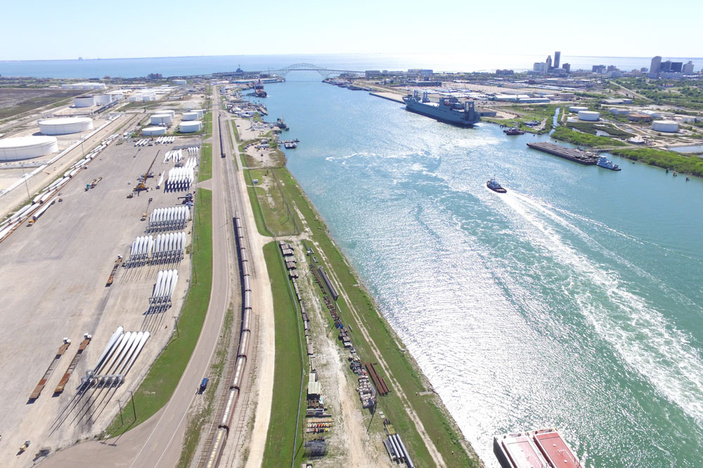The Environmental Protection Agency dealt a setback to a proposed oil terminal that would operate offshore of Corpus Christi. The agency advised Bluewater Texas Terminal it would not approve its permit application because the project would allow excessive emissions.
In a letter dated Sept. 1, the EPA advised that Bluewater could withdraw its applications by Sept. 15 and then present an amended plan with more stringent emission controls designed to reduce projected air pollution by 95 percent. This reversed an earlier decision made during the Trump Administration. At the time, the EPA ruled that the Bluewater project was exempt from controls on marine tank vessel operations.
The Bluewater Texas Terminal is a 50/50 joint venture of energy company Phillips 66 and Trafigura, a physical commodity trading group based in Singapore. The project, if completed, would be capable of exporting 384 barrels of crude oil per year, loading it into tankers that can transport up to 2 million tons of crude per ship. The facility would pipe the crude from a storage terminal near Taft to an operations center at Harbor Island and then transport it to an offshore site, about 21 miles east of the Corpus Christi Ship Channel entrance. There, floating hoses mounted on single-point-mooring buoys would pump the crude into tankers.
Projects such as Bluewater would enable offloading of crude away from the coastline and could service high-capacity tankers that might be too large to navigate many ports. While single-port-mooring facilities are not widely used in the United States, over 600 such installations operate worldwide, according to Bluewater’s website.
Objections to the Bluewater project focus on concerns the facility would have been allowed to emit more pollutants than others presently operating. Prior to Sept. 1, the agency would have permitted Bluewater to discharge up to 66 tons of benzene per year. Marathon Petroleum’s Texas City refinery emitted 49 tons of the same substance in 2019, making it the largest source of benzene emissions in the United States. Benzene is classified as a carcinogen, prolonged exposure to which can lead to cancer and other illnesses.
Thus far, Bluewater has not responded publicly to the agency’s actions other than to state it is “reviewing EPA’s comments.”
chuck@thepicayune.com
Permit rejected for Corpus Christi offshore oil terminal

Bluewater Texas Terminal wants to build the first large oil export facility about 21 miles east of the Corpus Christi Ship Channel entrance. Courtesy photo